Is your Android phone stuck in a never-ending loop of restarting, leaving you frustrated and wondering how to resolve the issue? Don’t worry, you’re not alone. In this guide, we’ll walk you through a step-by-step process to troubleshoot and fix your Android phone that keeps restarting or crashing.
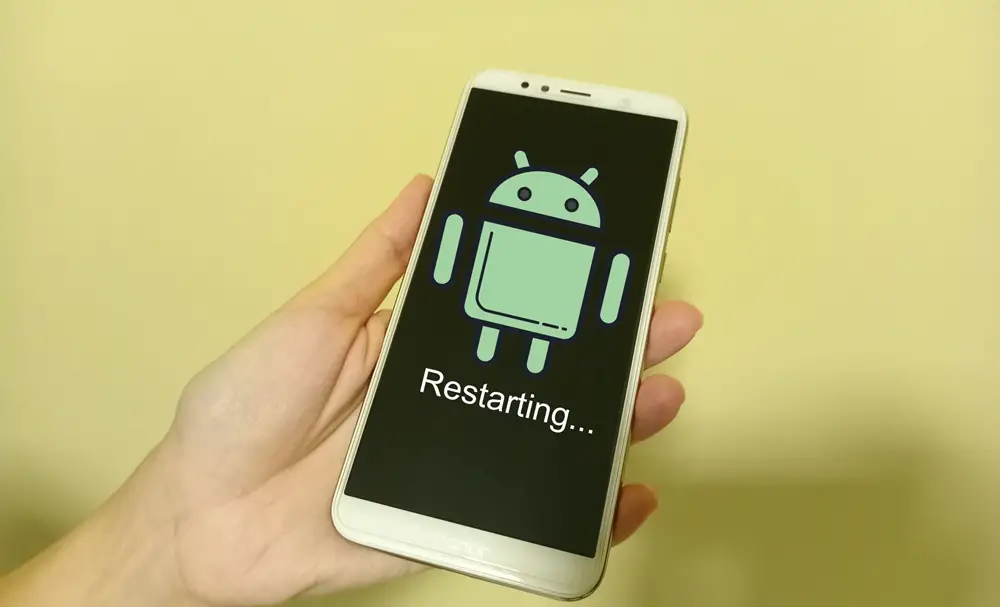
Why Does Your Android Phone Keep Restarting?
Our computers will sometimes randomly restart due to various reasons, and the same holds true for our Android phones. The potential culprits behind your phone’s repeated restarts are diverse and can include incompatible apps, software glitches, overheating, or even hardware malfunctions. Identifying the cause is crucial as it will enable you to apply the right solution.
Here are the solutions you can try to fix your Android phone that keeps restarting or crashing:
1. Update Android OS
An outdated Android OS can cause restart issues. Ensuring your Android phone runs on the latest operating system is essential for stability and bug fixes.
Follow these steps to update the Android OS:
1. Navigate to Settings: Open the “Settings” app on your Android phone. This is usually represented by a gear icon and can be found in the app drawer or on the home screen.
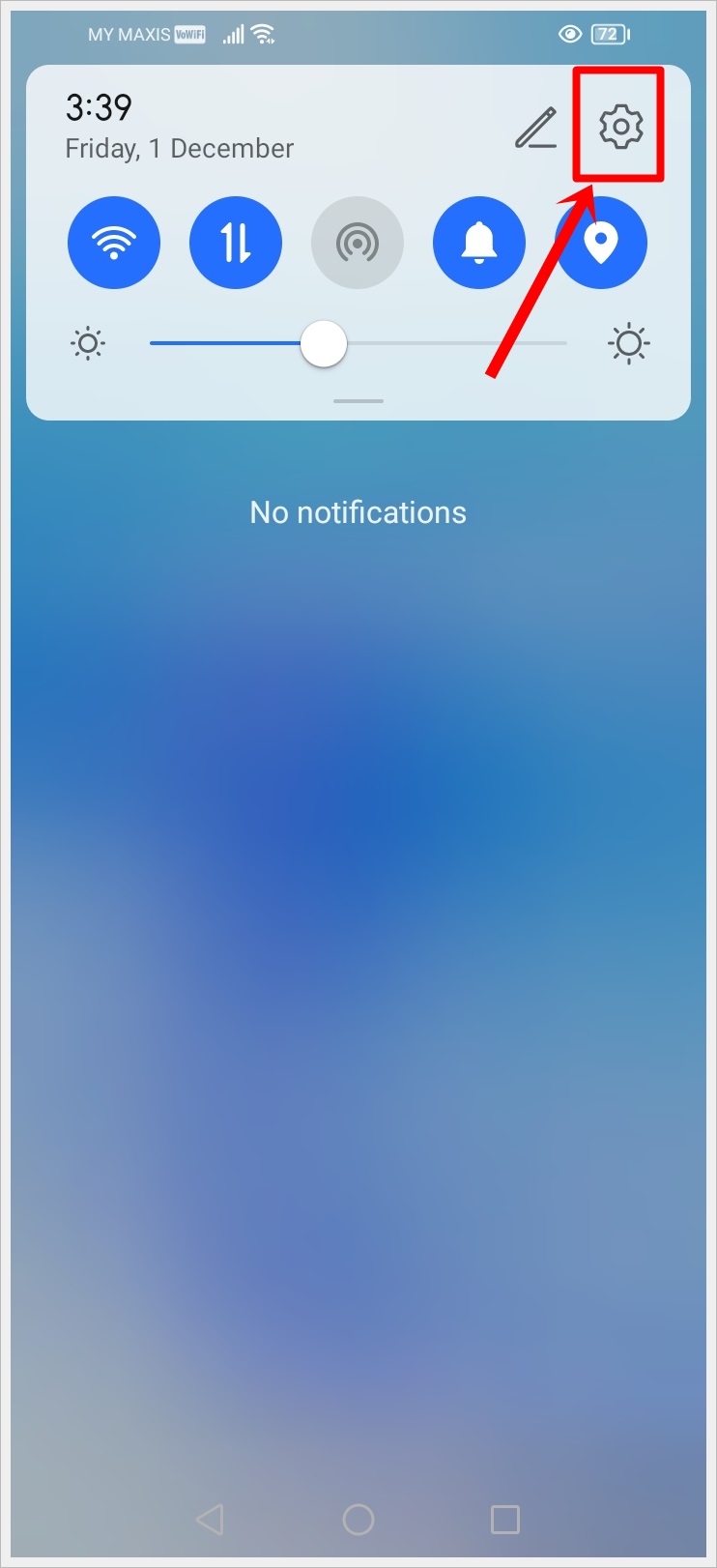
2. Go to System: Scroll down and select the “System” option. In some devices, this might be labeled as “System & Updates” or similar.
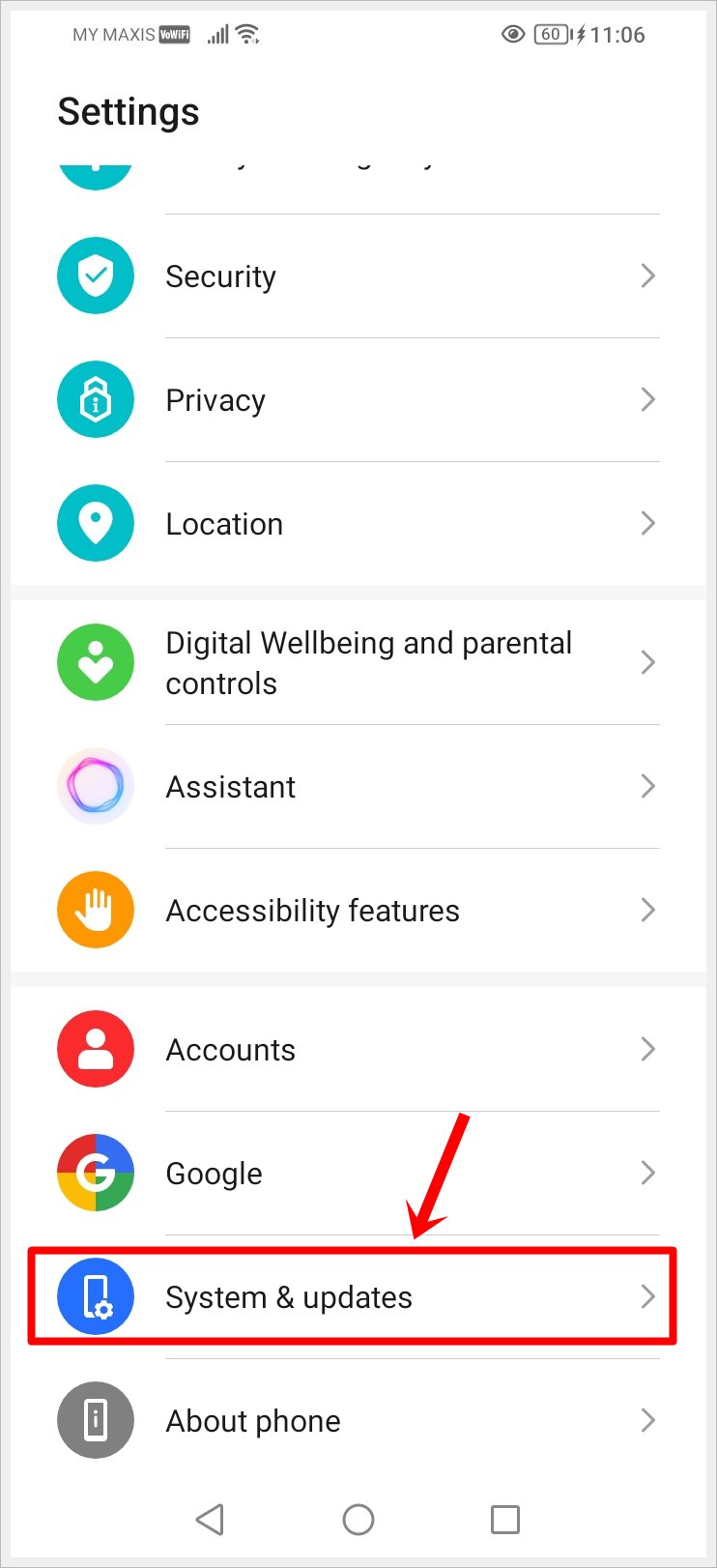
3. Select Software Update: Look for the “Software Update,” “System Updates,” or a similar option within the System menu.
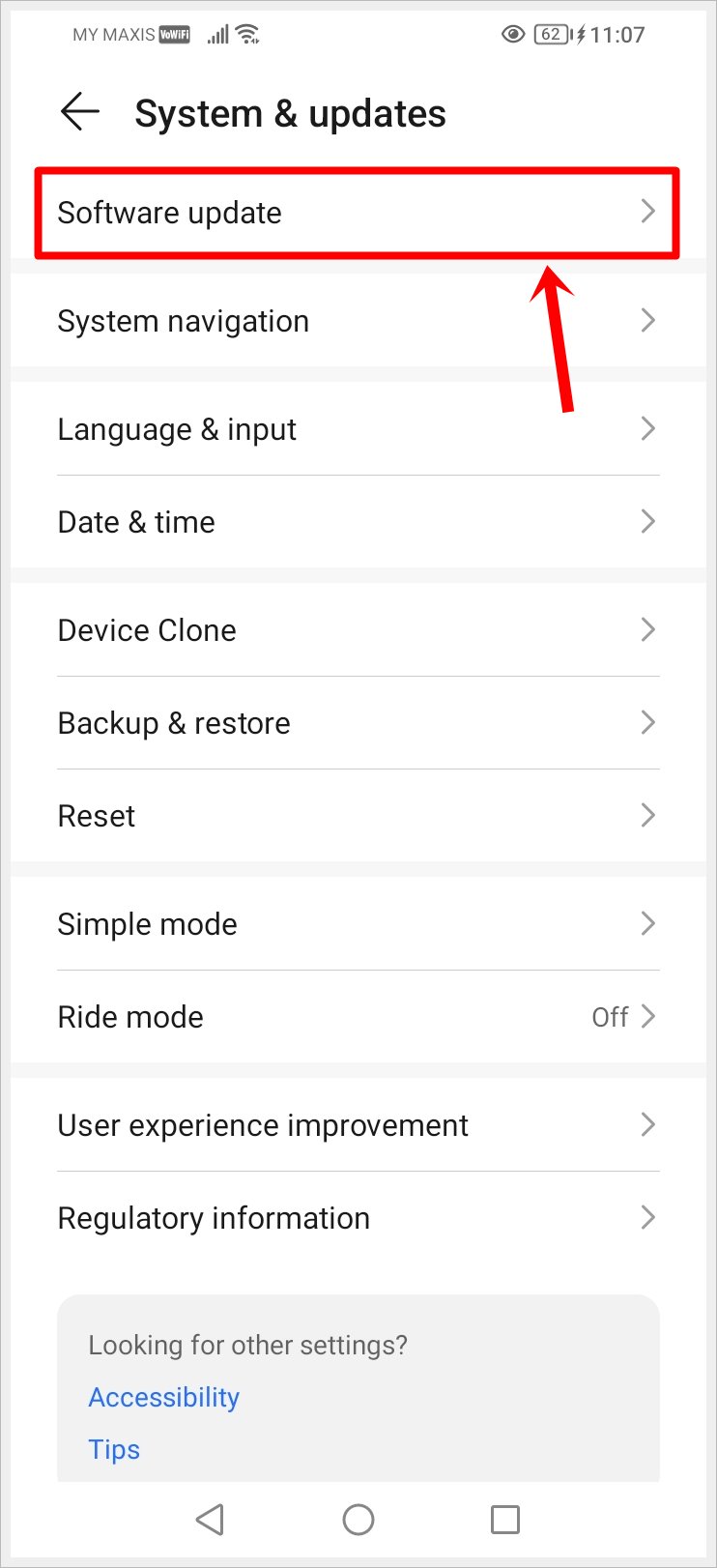
4. Check for Updates: Tap on “Check for Updates” or a similar button. Your phone will then connect to the server to see if there are any available updates.
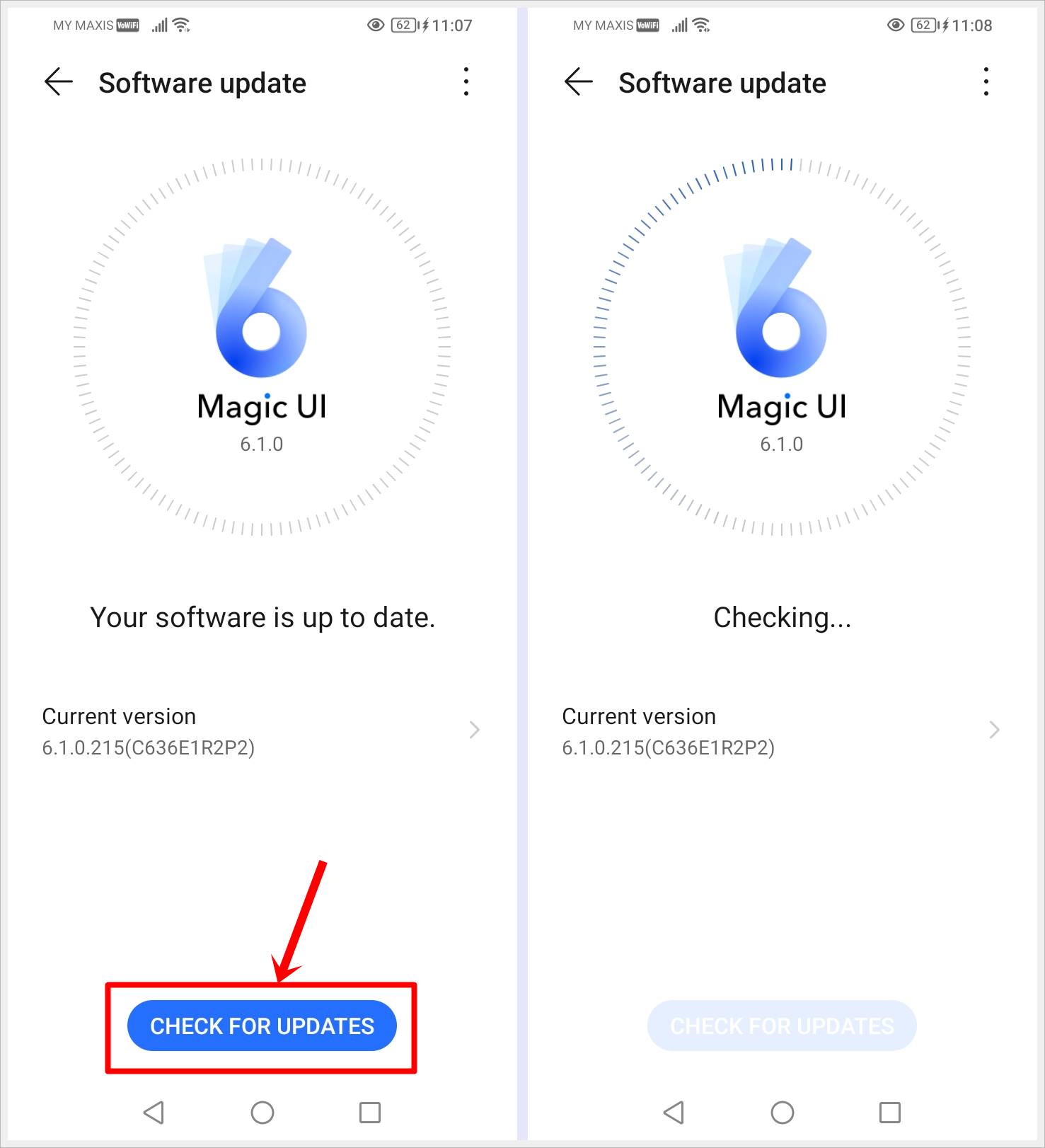
5. Download and Install: If an update is available, your phone will prompt you to download and install it. Follow the on-screen instructions to proceed with the update.
6. Restart Your Phone: After the update is installed, your phone may require a restart. Ensure all your data is saved, then proceed to restart your phone.
Updating the Android OS should fix the issue of your Android phone constantly restarting, and your phone should now work fine.
2. Identify and Uninstall Problematic Apps in Safe Mode
Boot your phone into Safe Mode to isolate the issue. In Safe Mode, only pre-installed apps run, allowing you to pinpoint if a third-party app is causing your Android phone to keep restarting.
Instructions for booting into Safe Mode (may vary depending on phone models):
- Power off your phone.
- Press and hold the power button until your phone’s logo appears.
- Release the power button and hold the volume down button until the restart is complete.
Once in Safe Mode, test if your phone restarts. If it doesn’t, it means there’s an app that could have caused the restarts.
To identify the offending app, exit Safe Mode and systematically uninstall recently installed apps one by one until you pinpoint the problematic one.
Navigate to Settings > Apps > [App Name] > Uninstall.
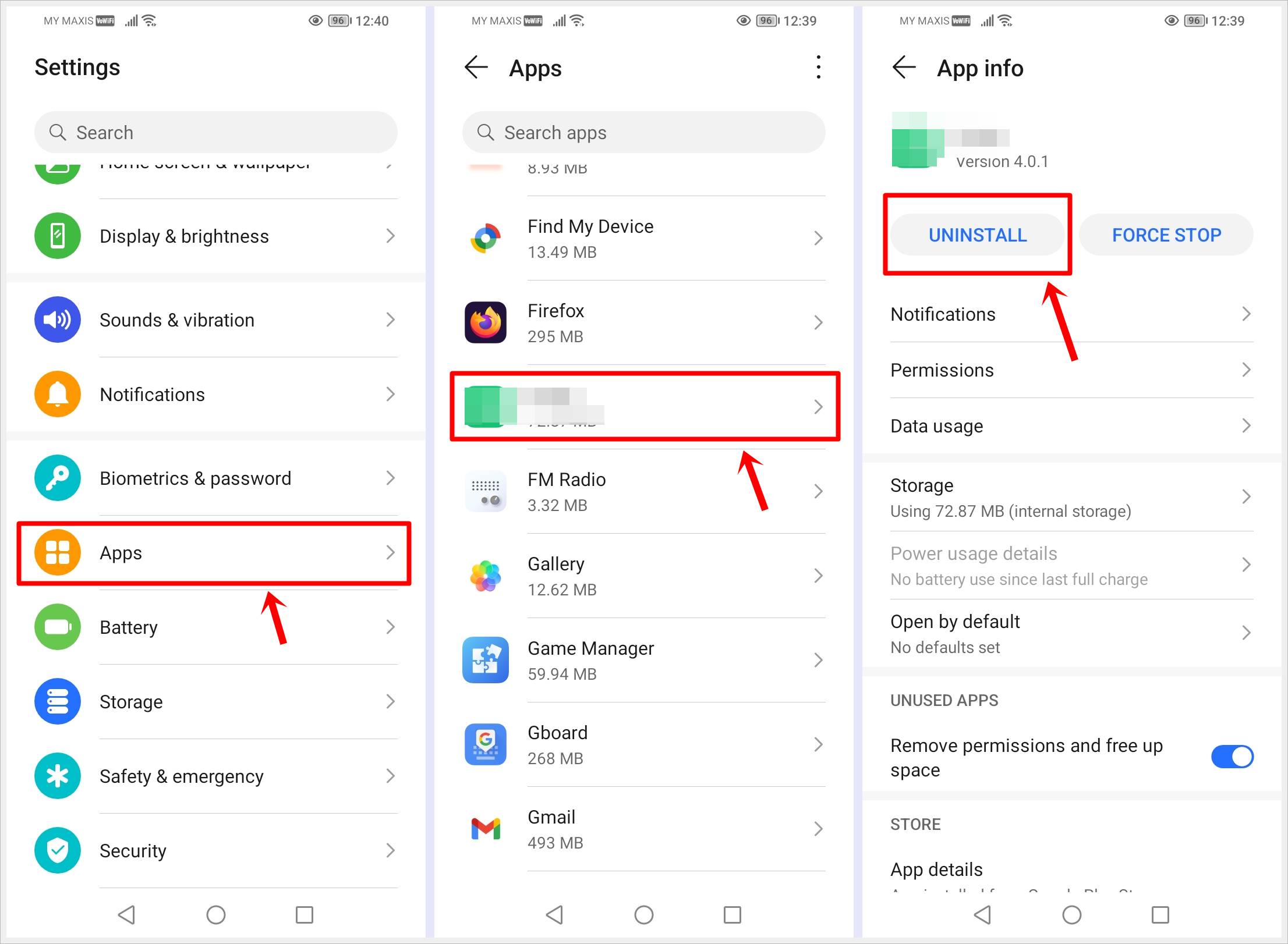
Test your phone for the restarting issue after each uninstallation. Once the restarts have stopped, it means the last uninstalled app was the culprit, and you can then reinstall all the previously removed apps.
Pro Tip: Are you getting ghost touch issues on your Android phone? No worries! Our comprehensive guide on how to fix ghost touch issues on Android phones should help!
3. Clear Cache Partition
Cached data can accumulate over time, potentially causing software glitches and your Android keeps restarting issues. Clearing the cache partition is a useful troubleshooting step to address these issues without affecting your personal data.
Follow these steps to clear the cache partition:
1. Power Off Your Phone: Ensure your phone is powered off before proceeding. This step helps prevent any potential errors during the cache-clearing process.
2. Boot into Recovery Mode: The method for accessing Recovery Mode can vary among different Android phones. Commonly, it involves pressing a combination of hardware buttons. Refer to your phone’s user manual or search online for specific instructions based on your phone model.
3. Navigate to the Recovery Menu: Once in Recovery Mode, use the volume buttons to navigate through the menu options. Look for an option like “Wipe Cache Partition” or similar.
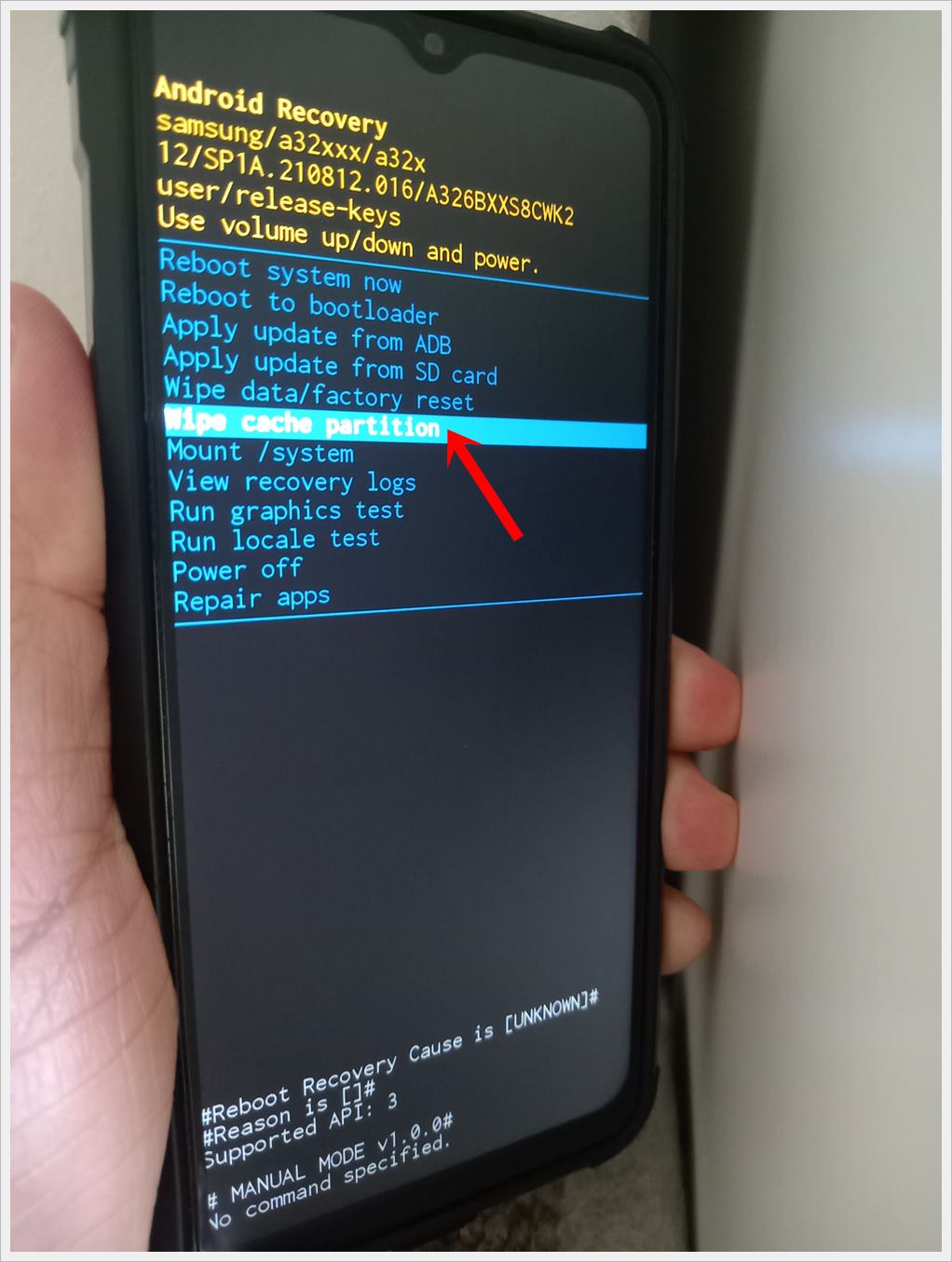
4. Select and Confirm: Highlight the “Wipe Cache Partition” option and use the power button to confirm your selection. A confirmation prompt may appear; proceed with the action.
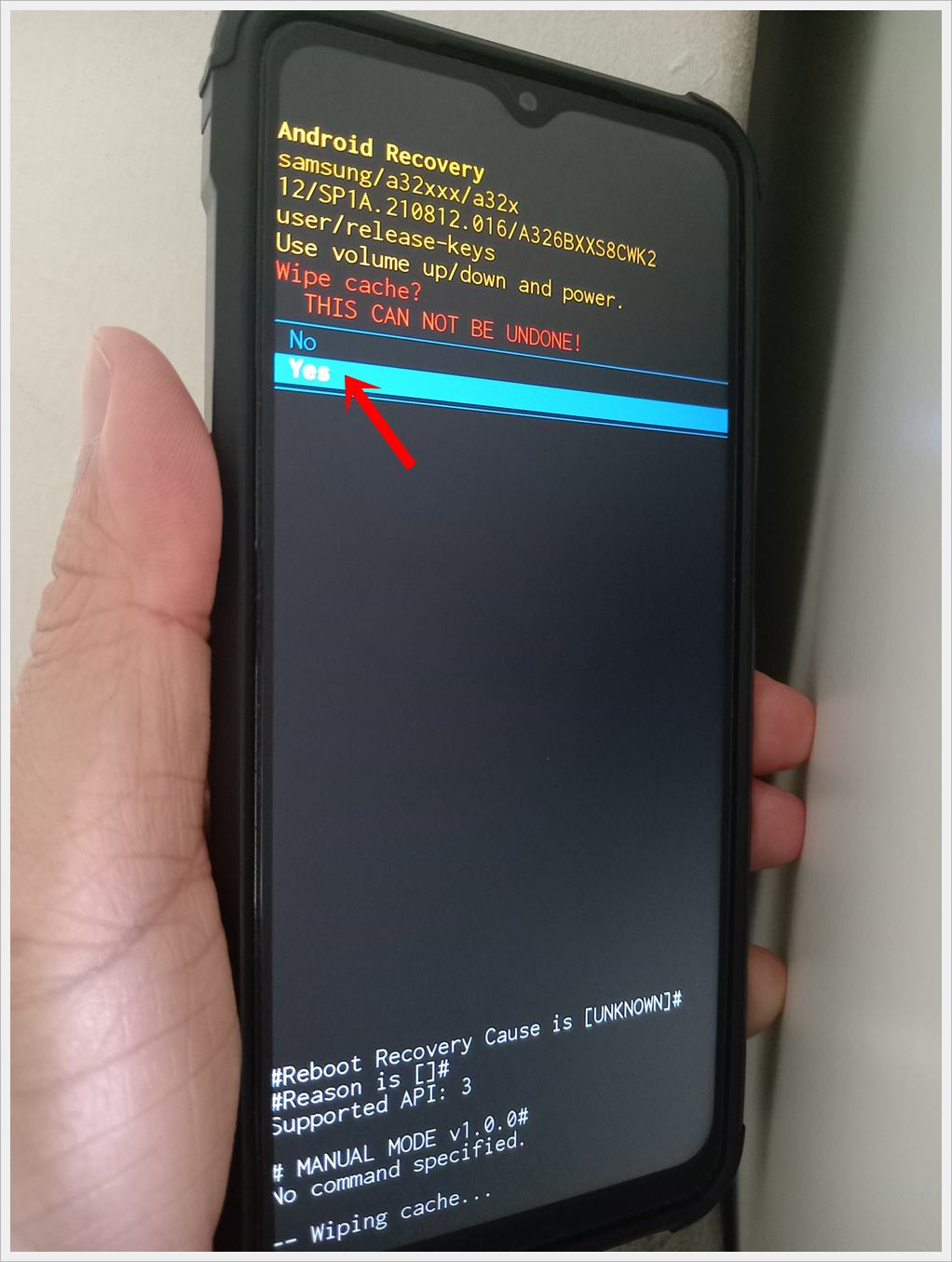
5. Wait for the Process to Complete: The cache partition will be cleared, which may take a few minutes. Be patient and allow the process to complete.
6. Reboot Your Phone: After clearing the cache partition, navigate to the “Reboot System Now” option in the Recovery Menu and confirm. Your phone will restart.
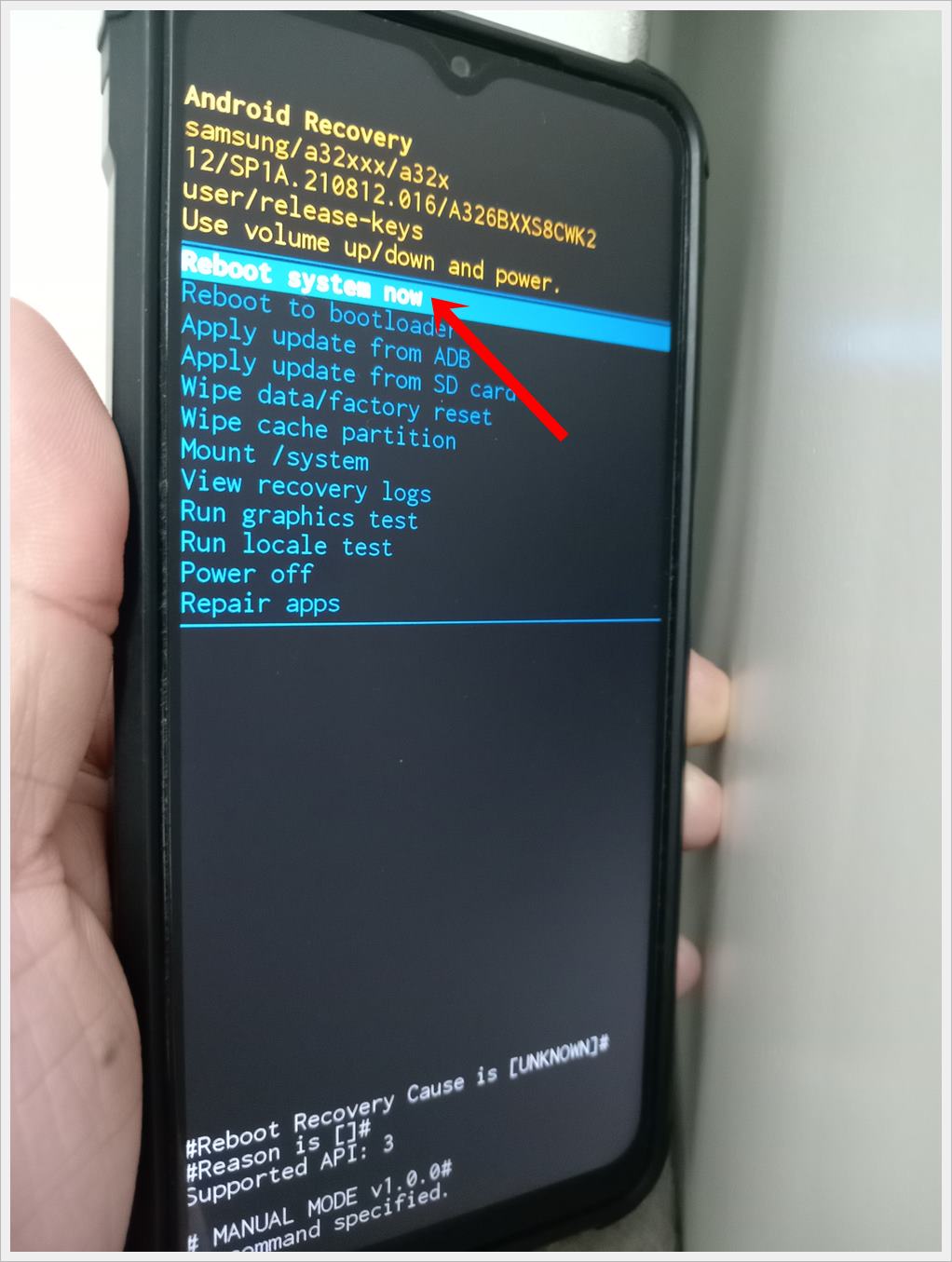
7. Monitor Performance: Once your phone has restarted, use it normally and see if the issue of restarting persist.
4. Clean Storage
Insufficient storage space can lead to performance issues on your Android phone, including random restarts.
Follow these steps to clean up your Android phone’s storage:
1. Check Storage Usage:
- Navigate to “Settings” on your Android phone.

- Go to “Storage” or “Storage & Memory” to view a breakdown of your storage usage.
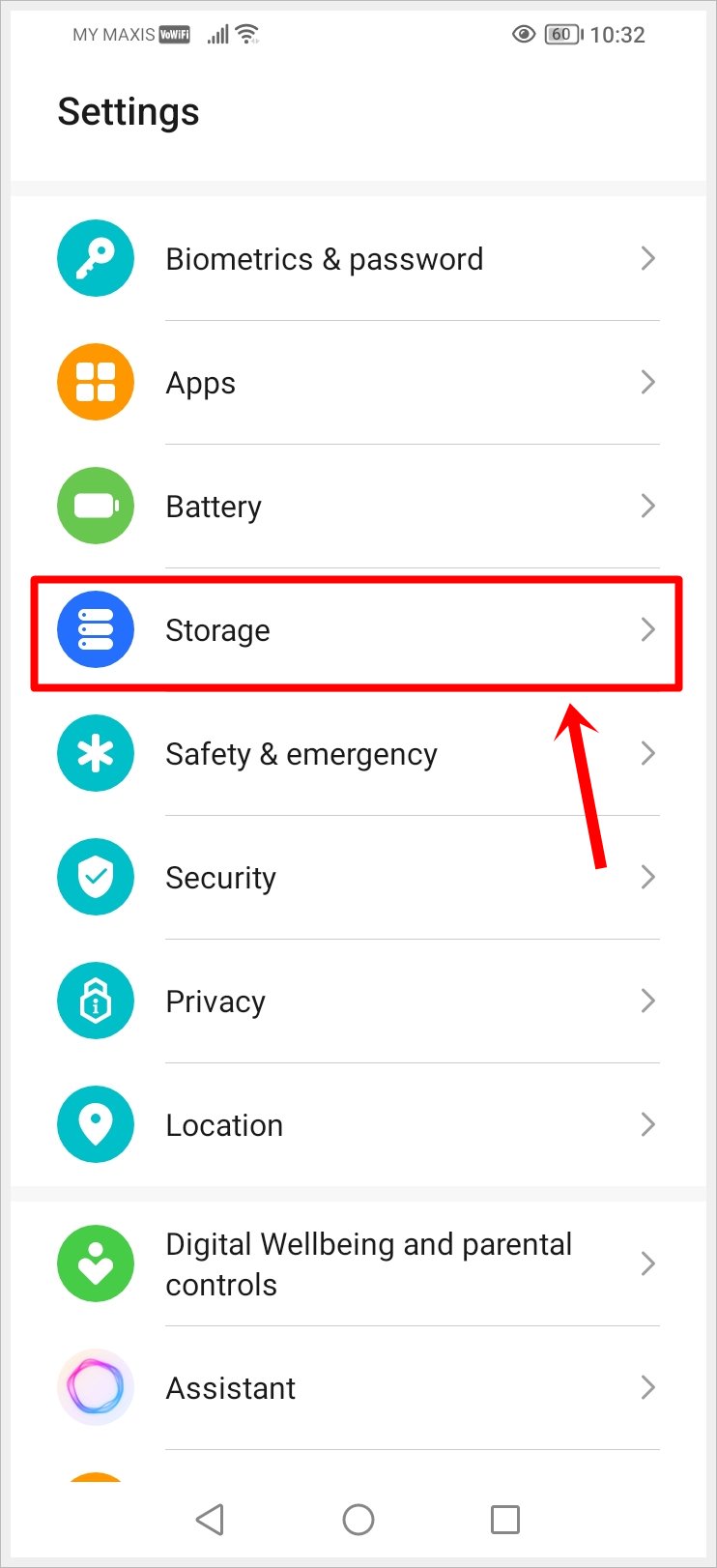
2. Clean Up Unused Files and Apps: Let your phone scan for files and uninstall apps that you no longer use or need. Follow the ‘Recommended for Cleanup’ section to clean up your phone’s storage.
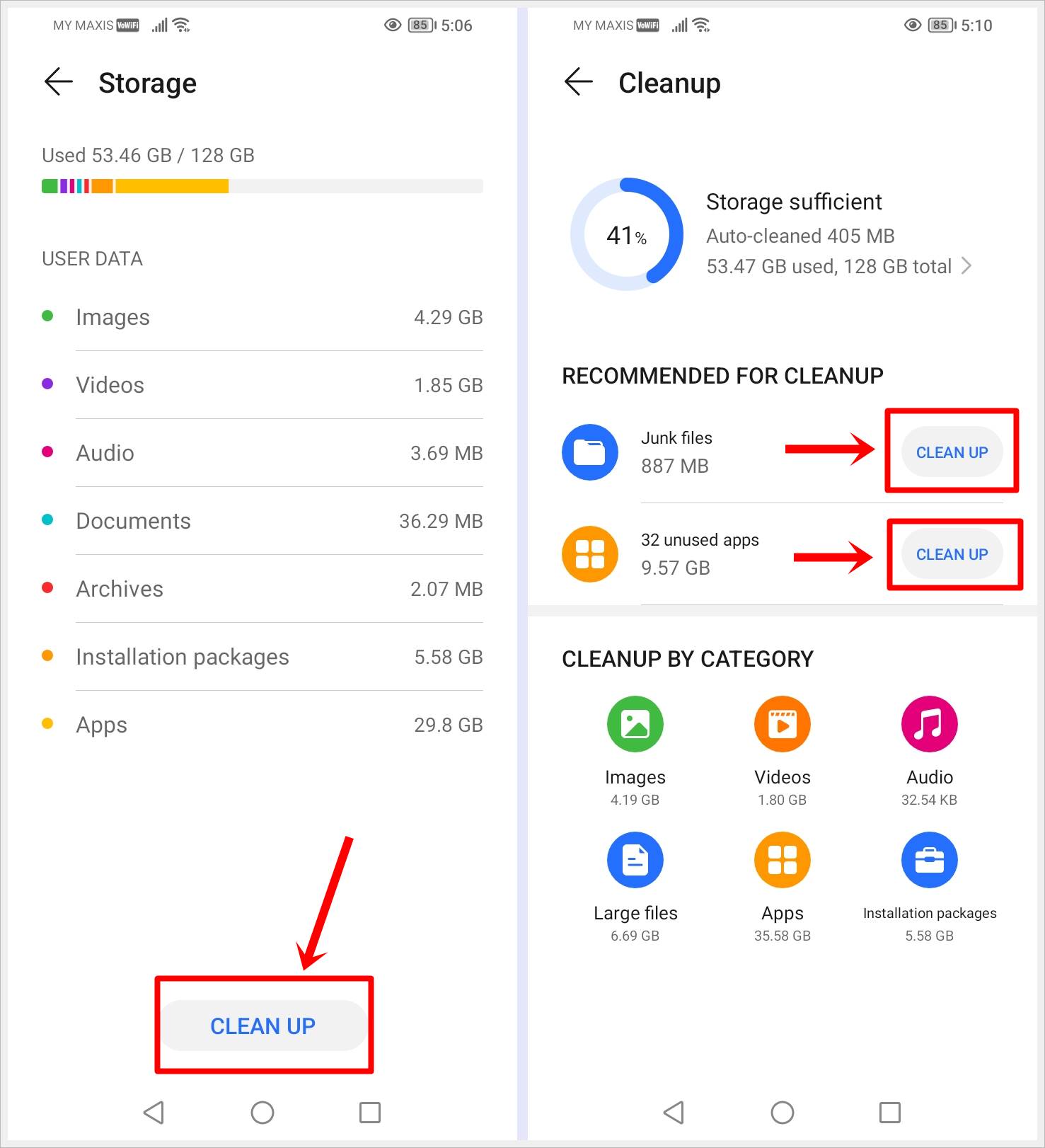
3. Clear App Cache:
- Some apps store a significant amount of data in the cache. Clearing the cache can free up space.
- In Settings > Apps > [Select an app]> Clear Cache
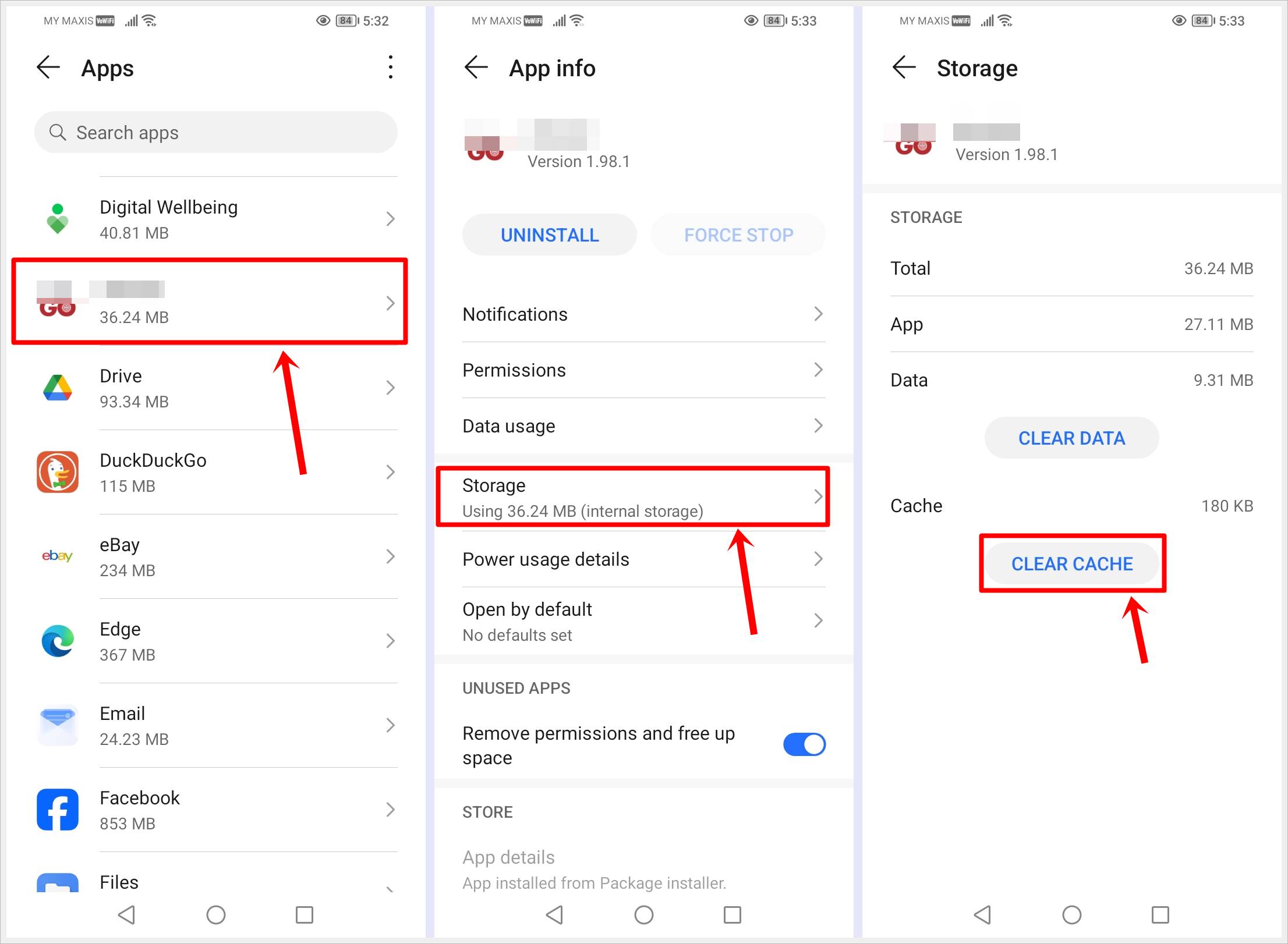
4. Restart Your Phone: After cleaning up your storage, restart your phone to ensure that changes take effect.
By regularly cleaning your phone’s storage, you can prevent performance issues and reduce the likelihood of your Android phone keeps restarting.
5. Clean Your Phone’s Ports
Dust and debris accumulated in your phone’s ports can lead to connectivity issues and potentially cause restart problems.
Follow these steps to clean your phone’s ports:
1. Power Off Your Phone: Before cleaning, ensure your phone is powered off to avoid any potential damage.
2. Inspect Ports: Carefully inspect the charging port, headphone jack, and any other ports for visible dust or debris.
3. Use Compressed Air: Gently blow compressed air into the ports to dislodge and remove dust. Hold your phone in a way that prevents the loosened debris from getting further inside.
4. Use a Small Brush: If compressed air is unavailable, use a small, soft brush (such as a toothbrush with soft bristles) to gently brush away any visible debris.
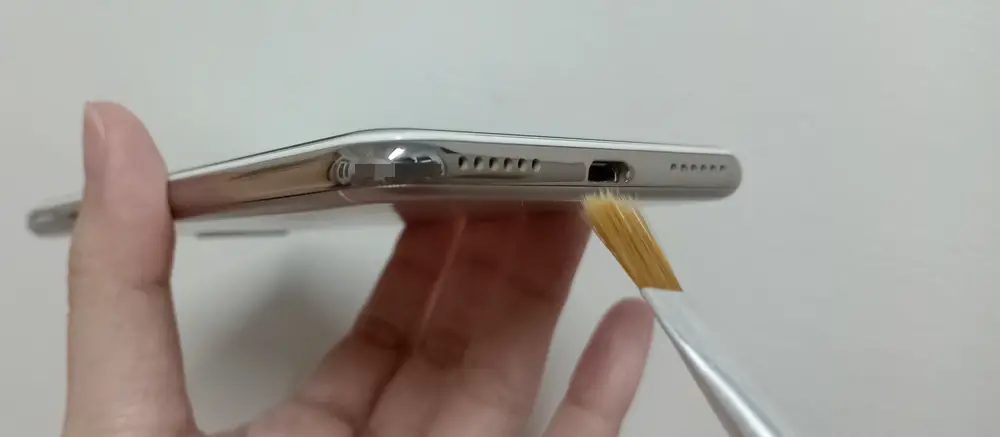
5. Avoid Using Sharp Objects: Refrain from using sharp objects, such as pins or toothpicks, as they may damage the ports or push debris further inside.
6. Check for Improvement: After cleaning, power on your Android phone and check if it still having the restarting issue.
7. Repeat if Necessary: If the issue persists, you may need to repeat the cleaning process.
Regularly cleaning your phone’s ports can ensure proper connectivity and may contribute to resolving restart issues associated with poor connections.
Read also: How to Dry a Wet Charging Port (and What NOT to Do)
6. Factory Reset (Last Resort)
A factory reset is the last thing you should try if your Android phone is still having problems, including constant restarts. It’s a drastic step that wipes out everything on your phone—your apps, settings, and data—making it like when you first got it. Make sure you’ve backed up everything important before you go ahead because you can’t undo this.
Steps to perform a factory reset:
1. Backup Your Data: Before initiating a factory reset, ensure all your essential data, such as contacts, photos, and documents, is backed up. You can use Google Drive or other backup solutions.
2. Open Settings: Access the “Settings” app on your Android phone.

3. Navigate to System: Scroll down and find “System” or “System & updates” in the settings menu. Tap on it.
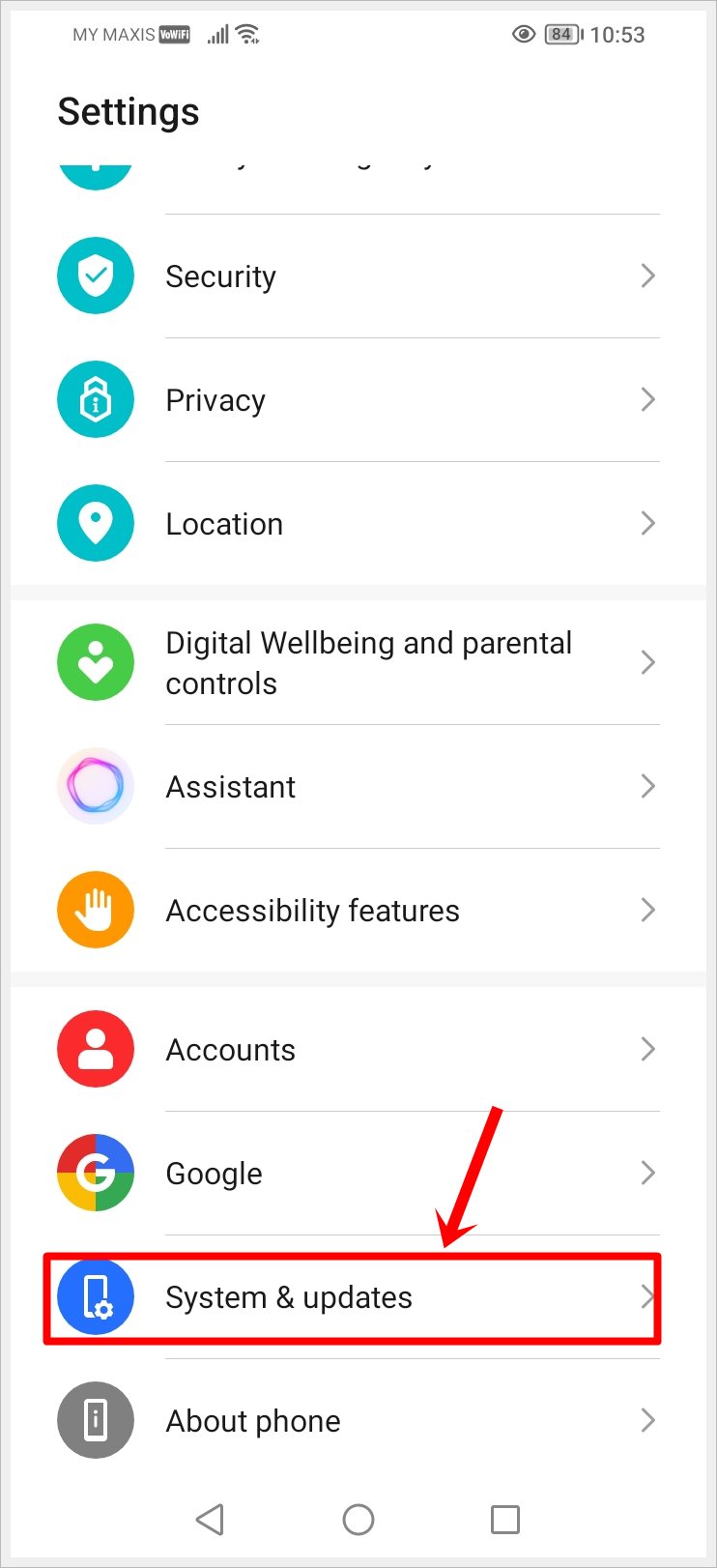
4. Reset Options: Look for an option related to “Reset” or “Reset options.” This may vary slightly depending on your phone.
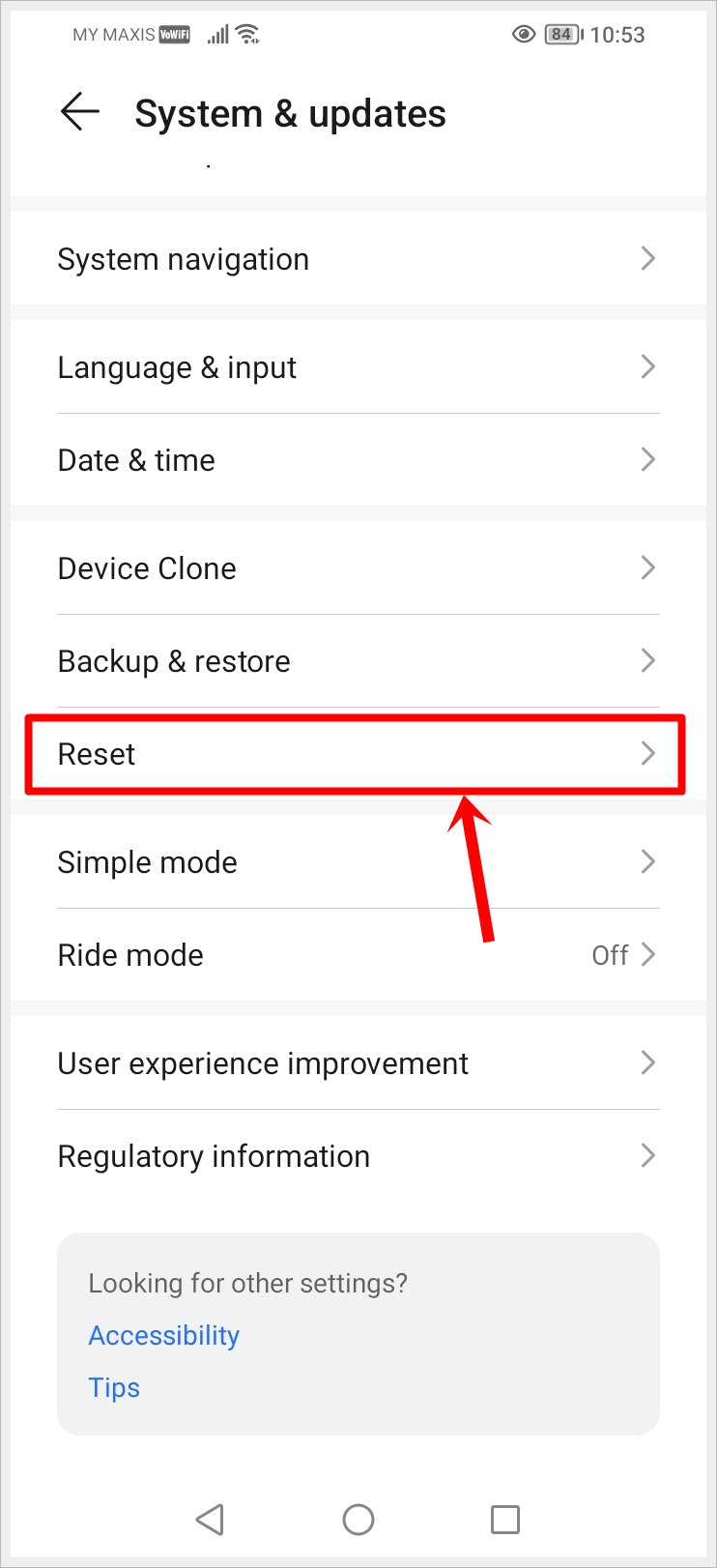
5. Factory Data Reset: Depending on your phone model, choose “Factory data reset”, “Reset phone”, or a similar option.
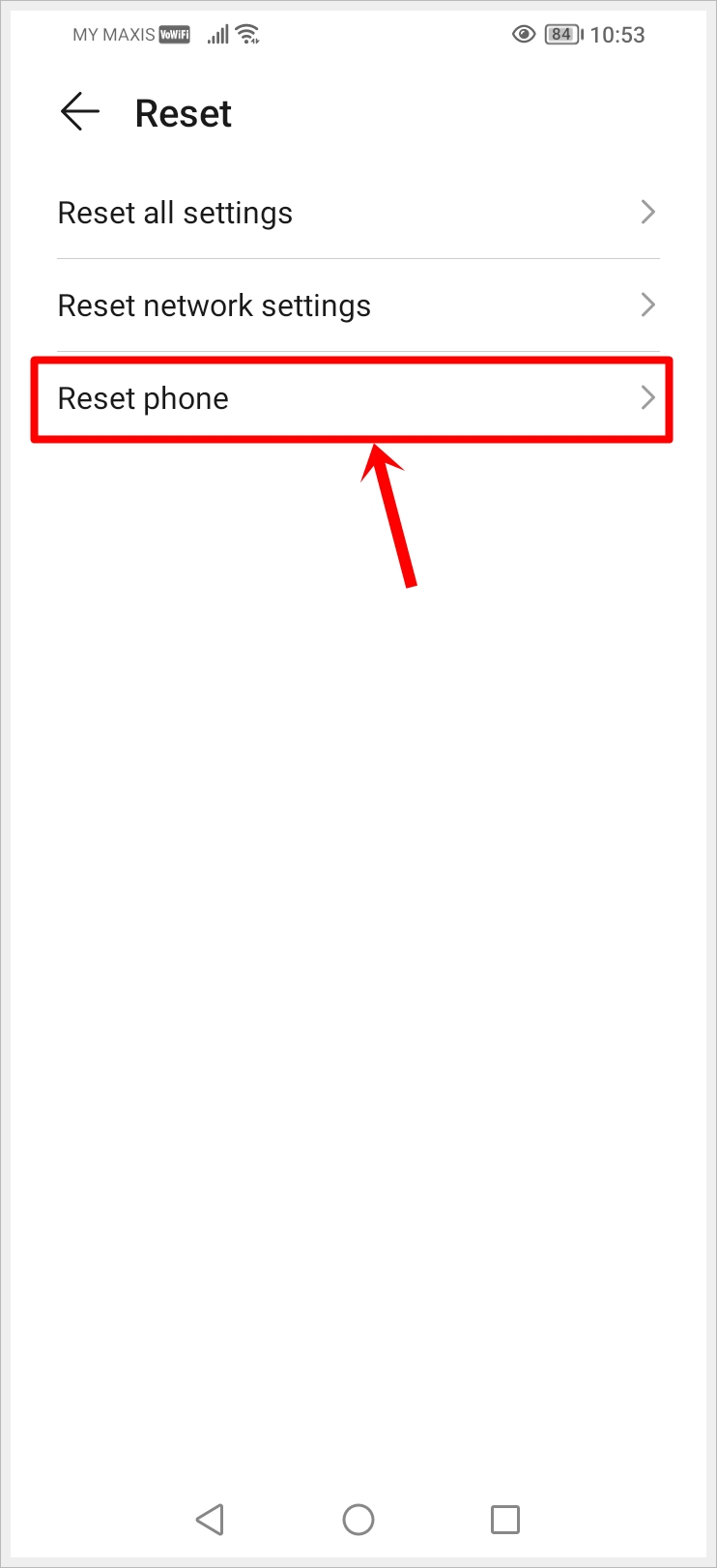
6. Confirm Reset: Read the information presented about the consequences of a factory reset. If you’re certain, confirm your action to initiate the reset.
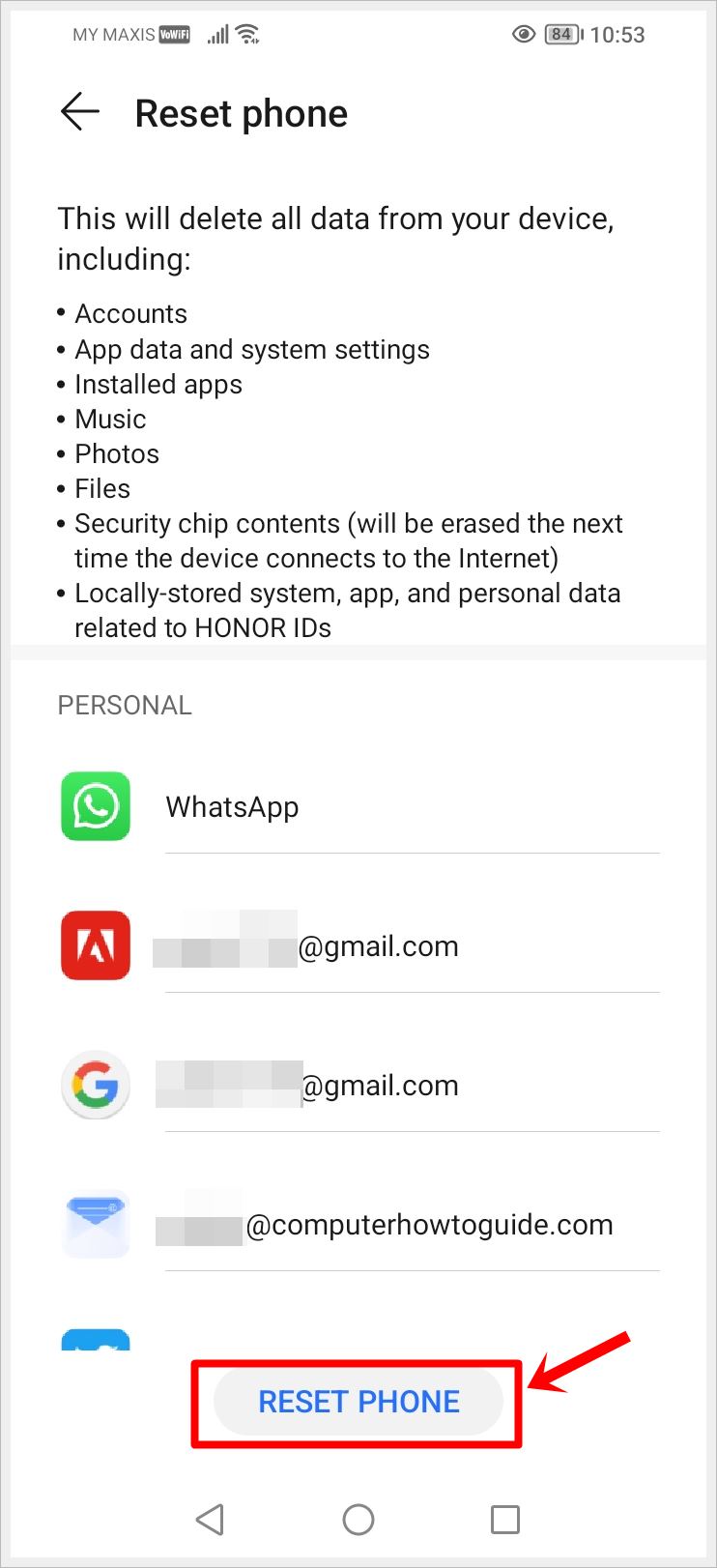
7. Wait for the Process to Complete: The factory reset process may take some time. Allow your phone to complete the reset.
8. Set Up Your Phone Anew: After the reset is complete, your phone will restart and prompt you to set it up as if it were new. Follow the on-screen instructions to configure your phone.
Caution:
- A factory reset is irreversible and erases all data on your phone.
- Ensure that your data is backed up before proceeding.
- Only perform a factory reset as a last resort when all other fixes have failed
Additional Tips to Fix an Android Phone That Keeps Restarting:
- Check for Overheating: Excessive heat can trigger your Android phone to keep restarting. Ensure your phone isn’t exposed to prolonged periods of direct sunlight or high temperatures.
- Battery Calibration: Sometimes, improper battery calibration can cause your Android phone to constantly restarting. Allow your phone to completely discharge, then charge it to 100% without interruptions.
- Professional Assistance: If the problem persists, consider reaching out to your phone manufacturer or service provider for professional assistance, especially if your phone is still under warranty.
Pro Tip: Accidentally deleted or dismissed a notification? No worries! We have an article that can help you on how to recover deleted notifications on your Android in no time.
FAQs
Why is my Android phone turning on and off continuously?
An Android phone may turn on and off continuously due to various reasons, including software glitches, incompatible apps, overheating, battery or hardware issues.
What should I do if my Android phone keeps restarting after a software update?
If your phone experiences restart issues following a software update, it could be due to compatibility issues or glitches. Try clearing the cache partition, uninstalling recently installed apps, and if necessary, consider a factory reset.
Is it normal for an Android phone to restart occasionally, or does it indicate a problem?
While occasional restarts may happen during system updates or app installations, frequent and random restarts are not normal and may indicate an underlying issue.
Pro Tip: Are you experiencing persistent freezing issues on your Samsung Galaxy phone? Discover 10 effective fixes to address a Samsung Galaxy phone that keeps freezing and restore your device to optimal performance!
Conclusion
By following these comprehensive steps, you should be well-equipped to troubleshoot and fix the issue of your Android phone keeps restarting. Don’t forget to back up your data before attempting major solutions, and if challenges persist, seeking professional help is a wise move.
